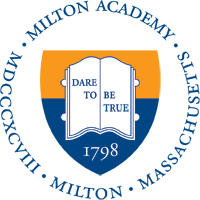Classics

Excavating the Past to Uncover the Present
The study of Greek and Roman works, in their original languages, gives students a unique window into understanding two ancient cultures and identifying their ripples, reflections, and distinctions in the modern world. Starting from a linguistic-based study of Latin and classical Greek, students become independent scholars—increasingly comfortable with the language and developing strong habits of mind. Students learn to be precise and logical readers—skilled in close, textual analysis—and interpreters. Class discussions are far-ranging, drawing connections across various disciplines such as English, history, mythology, archaeology, and philosophy. Students who choose to study Latin and Greek become more than just masters of vocabulary, language and syntax—they gain a centuries-long perspective on modern civilization and languages, and develop a strong foundation for future study in many fields.
From the Classroom
Advanced Greek: Plato
In this course, we continue the study of Greek grammar and syntax while reviewing the foundation built in the previous year. Students are introduced to Greek prose through a careful reading of selections from Plato’s Symposium, a text that serves as a basis for students’ study of 5th century Athenian culture and identity. In addition to the Symposium, students study related passages from other Platonic works and from other authors and poets. Over the course of the year, students explore topics in mythology, history, philosophy, drama, gender, and sexuality.
Classics Links
